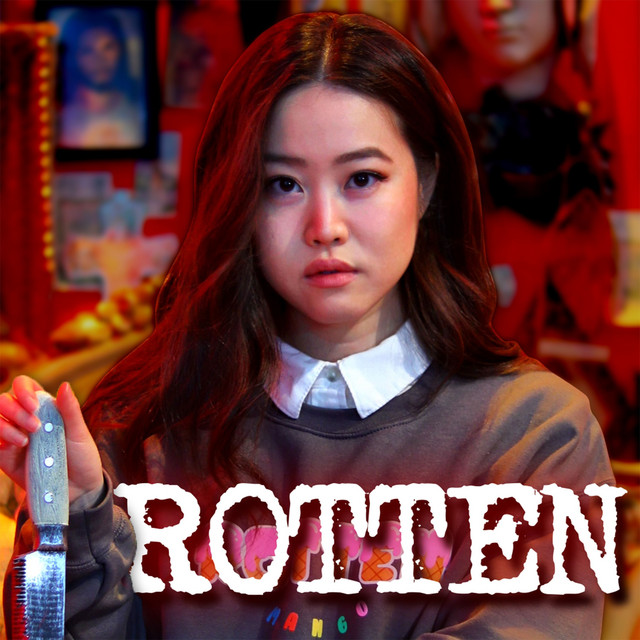True crime podcasts have captivated audiences worldwide, turning real-life tragedies into gripping narratives. Among the most popular is Rotten Mango, a podcast blending macabre storytelling with suspenseful intrigue. While its format keeps listeners hooked, it raises ethical questions: How does society’s fascination with violence affect our empathy? And when does consuming true crime cross the line into exploitation?
The genre’s allure is undeniable. A 2023 Edison Research report found true crime is the third most popular podcast genre in the U.S., with 24 percent of listeners tuning in. Host Stephanie Soo’s emotional storytelling in Rotten Mango balances respect for victims with shocking details that draw listeners in. Yet, this approach reveals a troubling duality: While shedding light on injustices, these podcasts risk reducing human suffering to entertainment, leaving audiences to grapple with whether they’re being informed or merely entertained.
One of the genre’s most significant ethical concerns is its portrayal of victims. In true crime, victims often become characters in a suspense-driven narrative. Their lives, families and dreams become secondary to intrigue. Soo’s storytelling humanizes victims, but the focus on sensational twists risks reducing real experiences to plot points. For many listeners, the tragedy becomes less about honoring victims’ lives and more about unraveling a mystery, creating a disconnect from the reality of the suffering involved.
True crime walks a fine line between raising awareness and sensationalizing trauma. On the one hand, Rotten Mango amplifies overlooked cases, particularly from marginalized communities. By spotlighting injustices, the podcast encourages advocacy and has even inspired calls for reforms. Campaigns tied to true crime stories have driven policy changes, including stronger funding for domestic violence shelters and cold case investigations.
On the other hand, the vivid pacing and graphic details risk turning real-life tragedies into spectacles. According to the Pew Research Center, 44 percent of Americans believe crime media prioritizes shock over substance, commodifying victims’ pain for consumption. This ethical tension reflects the challenge of balancing respect for victims with the demand for engaging content.
Frequent exposure to violent content also reduces empathetic responses, as highlighted by a 2022 Psychology Today study. Listeners can become desensitized, viewing victims with detachment rather than compassion. Additionally, true crime media distorts perceptions of crime rates. Despite a 50 percent decline in violent crime since the 1990s, a 2021 Gallup poll revealed that 78 percent of Americans believe crime is increasing. This fear, fueled by sensationalist media, reinforces societal anxieties rather than encouraging constructive solutions.
Despite its flaws, true crime holds significant potential for education and advocacy. Podcasts like Rotten Mango can provoke meaningful discussions about systemic failures and injustices. However, creators bear a responsibility to resist sensationalism and center their narratives on victims’ dignity. It’s essential to approach storytelling with care, ensuring that it fosters understanding rather than exploitation.
For listeners, engaging responsibly means questioning why we consume these stories. Are we seeking awareness and empathy, or simply thrill and entertainment? Critical consumption requires reflecting on the impact of these narratives — on both societal attitudes and the legacies of those whose stories are told.
True crime’s ability to illuminate societal injustices is undeniable, but its desensitizing effects cannot be ignored. By balancing curiosity with care, creators and audiences can ensure that the genre serves a meaningful purpose. This means respecting the humanity behind the headlines, focusing on the lives impacted and using true crime’s popularity to inspire change rather than perpetuate harm. Only then can we navigate the fine line between awareness and exploitation, fostering empathy and understanding in the face of society’s darkest moments.


Livvy • Sep 20, 2025 at 8:52 pm
Interesting take, but I think the use of statistics can be misleading. Is the reason people think crime is increasing because they consume true crime content? Or is it because we currently live in the digital age where we have access to a constant stream of news—local, national, international—at all times? 50 years ago, people in the US may not have heard of crimes that took place in Italy or China, but now because of social media and the internet we have such easy access to the news. I think blaming everything on true crime is disingenuous when social media and the internet regardless have completely changed our lives.
marquelisdead • Jun 4, 2025 at 10:38 pm
Captivating article. It really demonstrates how blurrier the lines are getting between entertainment and true-crime.